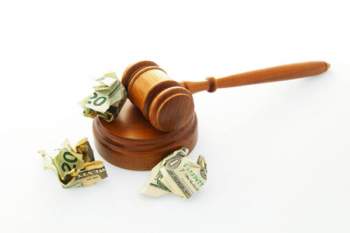
Kansas Bankruptcy

A Short Guide to Kansas State Bankruptcy Law
Before Filing
Kansas residents should be aware that they’re required to get credit counseling before filing for personal Kansas bankruptcy. This counseling must result in a certificate of completion that can be given to a Kansas Bankruptcy Court judge, and it must have taken place no earlier than 180 days before filing.
Businesses filing for bankruptcy should know that they’re required to hire a lawyer to help them through this difficult process. The same is not true for residents, though they should be advised that most filers hire Kansas bankruptcy attorneys regardless. A list of pro bono organizations in Kansas that may be able to help you if you cannot afford an attorney is located here.
Filing for Bankruptcy
U.S. Bankruptcy Courts for the District of Kansas are located in Topeka, Wichita, and Kansas City. You should go there to file your petition for bankruptcy, though some filings may be done through the mail. Come to the court with your forms already filed out. Copies of forms may be found here. Keep in mind that the average bankruptcy petition includes at least 30 forms. The forms that you will fill out depend on the type of bankruptcy that you will file. Keep reading to learn more about the different types of Kansas bankruptcy.
Chapter 7 Kansas Bankruptcy
Chapter 7 is the most severe type of bankruptcy on the books, meant to help entities quickly pay off their debts by selling their assets. The process of selling assets is termed “liquidation.”
• Corporate Bankruptcy: Businesses can’t continue operations while their assets are being sold, and a further problem for them lies in how they are liable for all debt that has not been paid off in the liquidation process. For these reasons, businesses seldom recover from Chapter 7 Kansas bankruptcy.
• Individual Bankruptcy: For individuals, however, Chapter 7 can be a much more appealing form of Kansas bankruptcy, especially for those whose main debt is from credit cards. This individuals often have little property that they are liable to lose to the court, and that unsecured credit card debt will disappear after the bankruptcy, no matter whether the assets that are raised are sufficient to cover the debt or not.
Chapter 13 Kansas Bankruptcy
The key component to Chapter 13 is the development of a plan to pay back creditors over a series of years. Debt is not quickly erased, as with Chapter 7, but slowly paid down.
• Individual Bankruptcy: This type of Kansas bankruptcy is meant for wage earners. Individuals who qualify for Chapter 13 bankruptcy make more than those eligible for Chapter 7. That is, they make more than the mean Kansas income or they don’t pass a Kansas Means Test. The money for paying creditors come from the wage earner’s discretionary income.
• Corporate Bankruptcy: Few businesses file under Chapter 13 Kansas Bankruptcy, but those that do are typically very small, with less than $800,000 in secured debt or $200,000 in unsecured debt. (Secured debt is debt with collateral on it.)
Chapter 11 Kansas Bankruptcy
This is a similar plan to Chapter 13, again featuring a repayment plan, but it also stresses financial restructuring to better future finances. It is intended for individuals or businesses with more debt than can be covered under Chapter 13. Typically, very few individuals file under it.
One Word of Warning
Many businesses and individuals end up running most afoul of their accounting ledgers because of tax debt. This is naturally incurred overtime, and if not kept track of properly it can quickly pile up, especially if further tax fines are added. Unfortunately, Kansas bankruptcy law is not able to dismiss most tax debt like it can other types of debt. If you suffer from high tax debt, Kansas bankruptcy may help you, but your best bet may still be trying to negotiate with the IRS. Contact a Kansas bankruptcy lawyer to learn more.



















